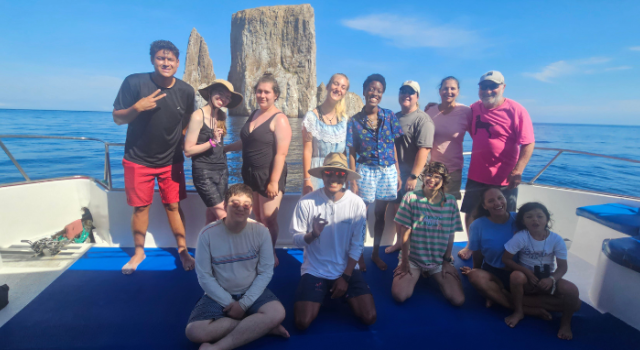
Laela Sayigh

Laela Sayigh received her B.A. from the University of Pennsylvania and her Ph.D. from the Massachusetts Institute of Technology/Woods Hole Oceanographic Institution (MIT/WHOI) Joint Program.
Her research focuses on the social behavior and communication of cetaceans (whales and dolphins). Her current projects focus on a wide range of species, including blue whales, fin whales, pilot whales, and bottlenose dolphins, and are both applied (e.g., looking at effects of anthropogenic noise on communication) and basic (e.g., looking at call structure and function). Given the challenges of studying species that spend most of their lives underwater, she is involved in research that utilizes new technologies, such as non-invasive tags, to study cetacean communication systems.
Recent and Upcoming Courses
-
This course will explore a selection of the main theoretical ideas and methods of the scientific study of animal behavior. We will explore functional and evolutionary bases of animal behavior, including reproductive behavior, mating systems, parental care, altruism, social behavior, communication, and cognition. Readings will come from books and primary scientific literature. We will focus in detail on animal senses, which we will learn about through reading the book "An Immense World". The main goals of the course are to instill excitement and curiosity about the subject, and to provide conceptual foundations and intellectual tools to think creatively and critically about animal behavior and science in general. Students are expected to be active participants in class discussions. In addition, students will prepare written responses to readings, and engage in a project (format to be determined), which will be presented to the class Keywords: animal behavior, animal senses, biology
-
This course will provide an introduction to the biology of the group of animals known as marine mammals (whales, dolphins, seals, sea lions, manatees, sea otters, and polar bears), including evolution, diversity/taxonomy, life history, physiology, ecology, behavior, communication and cognition. In addition to reading scientific literature and popular articles, we will also engage with diverse perspectives on marine mammals, which will include reading the books "Undrowned: Black Feminist Lessons from Marine Mammals," and "Whale Snow: Inupiat, Climate Change, and Multispecies Resilience in Arctic Alaska." Students are expected to be active participants in class discussions. In addition, students will prepare written responses to readings, and engage in a project (format to be determined), which will be presented to the class. Keywords:marine mammals, cetaceans, indigenous whaling


